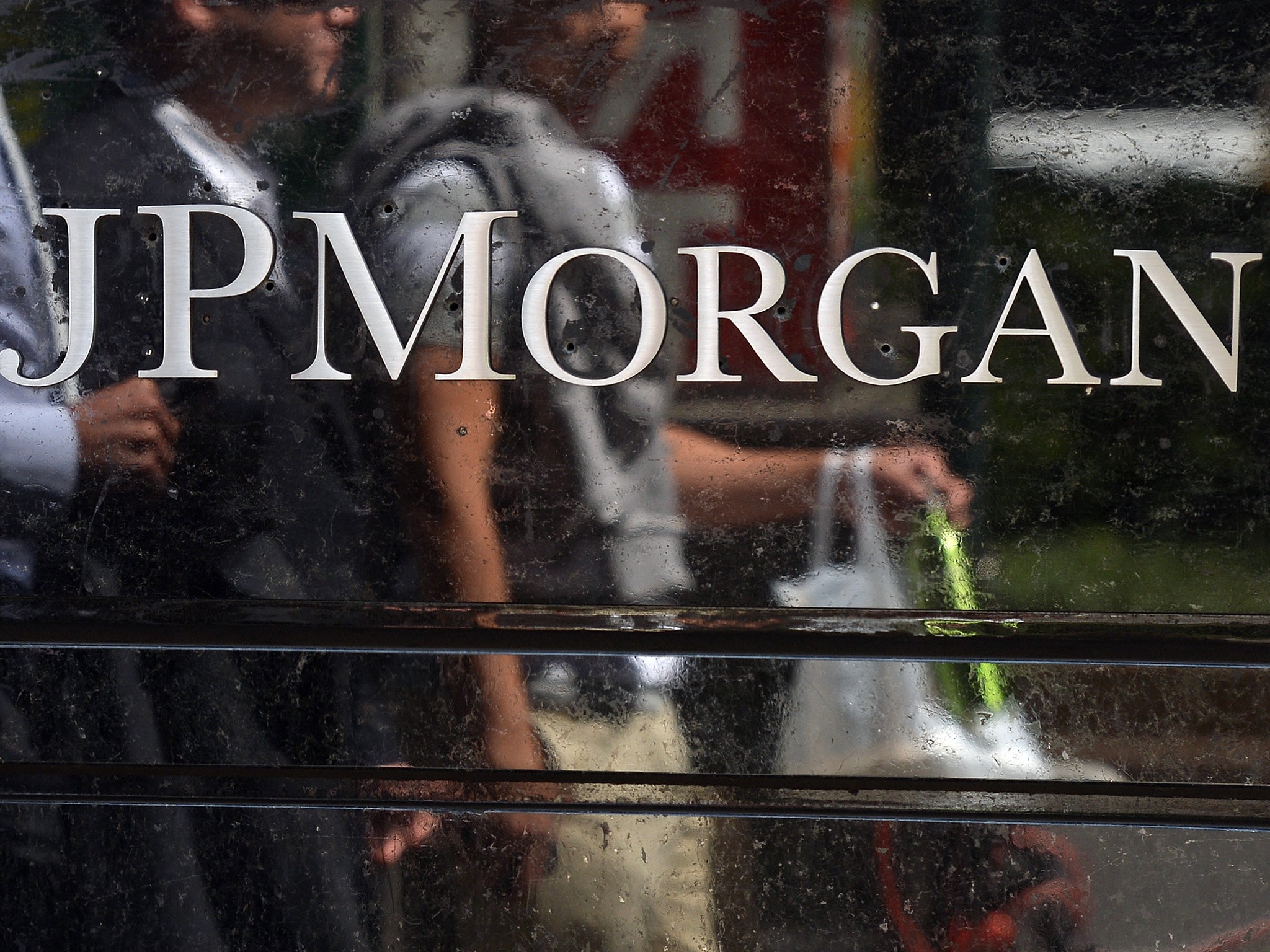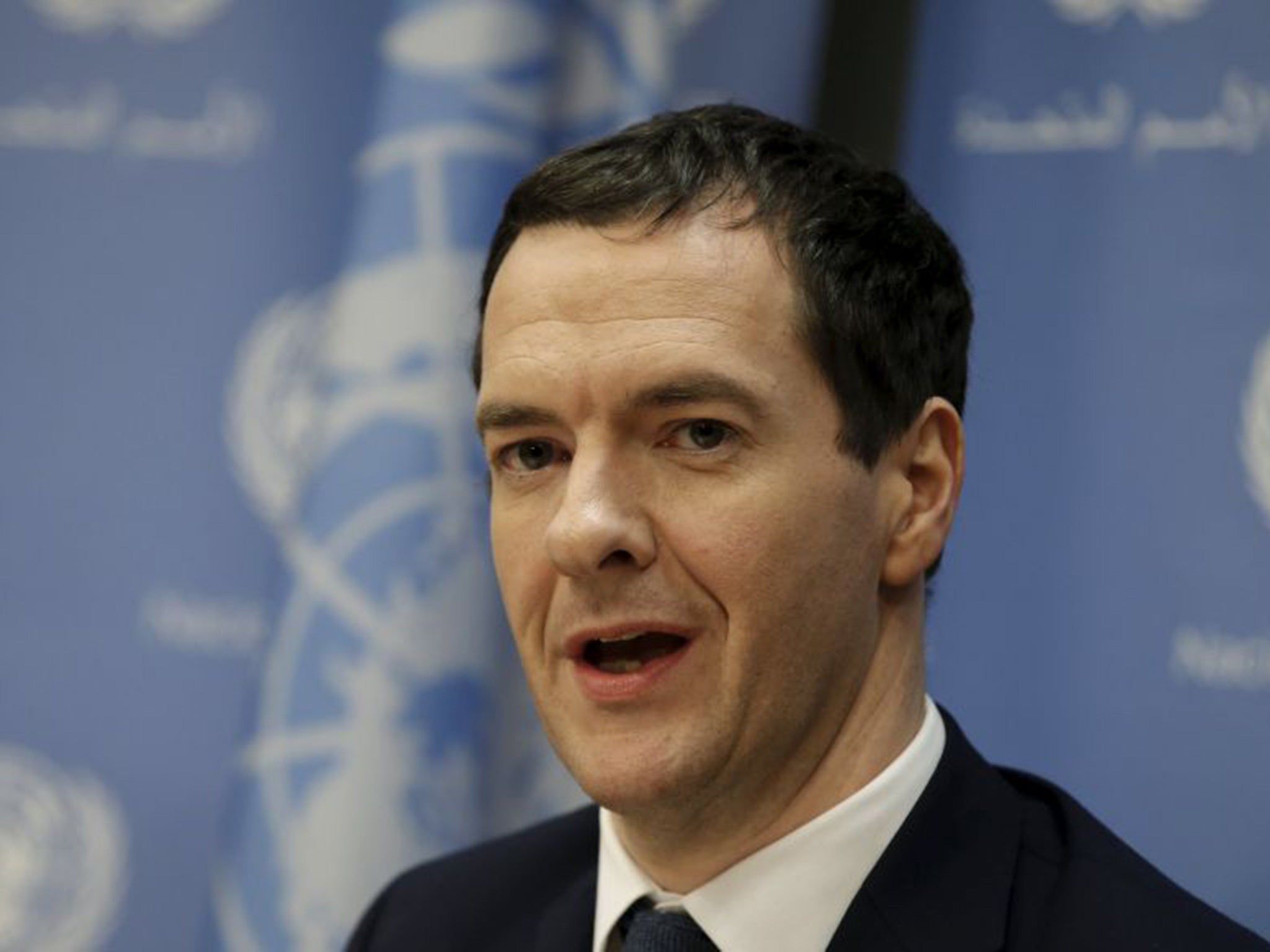Five of world's biggest investment banks pay no UK corporation tax
JP Morgan, Bank of America Merrill Lynch, Deutsche Bank AG, Nomura Holding and Morgan Stanley make billions in profit in Britain – but analysis reveals their UK arms paid not a penny of business levy in 2014

Your support helps us to tell the story
From reproductive rights to climate change to Big Tech, The Independent is on the ground when the story is developing. Whether it's investigating the financials of Elon Musk's pro-Trump PAC or producing our latest documentary, 'The A Word', which shines a light on the American women fighting for reproductive rights, we know how important it is to parse out the facts from the messaging.
At such a critical moment in US history, we need reporters on the ground. Your donation allows us to keep sending journalists to speak to both sides of the story.
The Independent is trusted by Americans across the entire political spectrum. And unlike many other quality news outlets, we choose not to lock Americans out of our reporting and analysis with paywalls. We believe quality journalism should be available to everyone, paid for by those who can afford it.
Your support makes all the difference.Five of the world’s biggest investment banks paid no corporation tax in Britain last year despite making billions of pounds in profits.
According to an analysis of the banks’ corporate filings by Reuters, JP Morgan, Bank of America Merrill Lynch, Deutsche Bank AG, Nomura Holding and Morgan Stanley all said their main UK arms paid no corporation tax.
The findings are likely to reignite the row over huge, multinational companies that make billions of pounds of profit each year, yet pay little or no corporation tax. In recent years, companies such as Amazon, Google, Starbucks and Netflix have all been criticised for their British tax tactics.
Despite George Osborne’s repeated pledge to ensure corporations pay their fair share of tax, the filings show that companies are continuing to shift profits out of the country to avoid paying Her Majesty’s Revenue and Customs (HMRC).
MPs and tax campaigners said that after receiving so much state support during the financial crisis, it was wrong that banks could operate almost tax free.
“The tax receipts from these large financial institutions show what a charade their claim to pay their fair share has become,” said Labour MP John Mann, who serves on the Treasury Select Committee. “They rely on the taxpayer to underwrite their risk, yet they pay a minimal return back to the Exchequer.”

JP Morgan, Bank of America Merrill Lynch, Deutsche Bank AG, Nomura Holding and Morgan Stanley all said their main UK arms paid no corporation tax. Along with Goldman Sachs and UBS AG that paid some corporation tax, the seven banks generated revenues of £20bn in the UK, profits of £3.5bn, employing 33,000 staff. They paid a combined total of £21m in corporation tax.
But the filings showed that at least some of the banks paid no tax because they reported losses in London, while reporting profits in much smaller subsidiaries in countries with less strict tax regulations.
The figures are available because of a change in European Union rules in 2013 which requires banks to publish country-by-country profit and tax break-downs.
The most profitable investment and commercial bank in the UK, JP Morgan Securities Plc, had $2.6bn (£1.75bn) in profits last year but paid no tax, the bank said in its country-by-country report (CBCR) – which all major banks operating in the EU are required to produce by the end of 2015.
The bank noted in its filing that it had a 2014 UK tax liability of $524m but that this was offset by foreign tax credits, overpayments in previous periods and “the benefit of other available tax reliefs”.
Goldman Sachs Group UK Ltd said it made $2bn in Britain in 2014 and paid $26.6m in corporation tax. The group’s CBCR said the low tax bill partly reflected “timing differences” around payment of stock awards to staff.
Stock awards are often expensed against reported profits before the shares are paid out and the issuing company can take a tax deduction, which can add to the volatility of tax payments.
Deutsche Bank’s European investment banking arm is based in London, where it employs 8,000 investment and commercial bankers.
The bank reported a 2014 loss of €2.2bn (£1.63bn) in the UK and a €549m profit in Luxembourg, where it employed 610 people and tax rules allow financial companies to earn income tax free.
The absence of UK profits meant Deutsche had no tax bill in Britain. A spokesman declined to say how much tax the bank paid in Luxembourg or why that operation was so profitable compared with its bigger UK operation.
Bank of America Merrill Lynch eliminated the tax bill on $550m in profits by “the utilisation of historical losses brought forward”, its filings said. The bank has around $8bn in tax assets which it can use to reduce its tax bill, courtesy of more than $34bn in British losses generated in 2007 and 2008. Switzerland’s UBS AG also reduced its bill thanks to historical losses.
The reduction in tax revenues in this way prompted the UK to restrict the use of historical tax losses earlier this year.
HMRC and the Treasury declined to comment on the banks’ payments, citing taxpayer confidentiality. HMRC, which estimated that Britain’s tax gap stood at £34bn in 2013, £3.5bn of which was estimated to be lost corporation tax revenues, said it applied the tax rules set by Government without discretion.
Spokespeople for the banks all declined to comment although their filings noted that they followed all tax rules and noted that tax payments can be volatile and may reflect profits generated in earlier years.
Banking industry groups say that in addition to paying corporation tax, the banks benefit the Exchequer by generating significant amounts of income tax.
The news comes days after a Sunday Times investigation revealed that the video-streaming service Netflix paid no corporation tax last year despite generating an estimated £200m in revenue from its 4.5 million British subscribers. Any profits from the UK in 2014 were booked overseas. There is no suggestion Netflix broke the law.
Following the annual meeting of the International Monetary Fund in October the Chancellor hailed a “historic agreement” after finance ministers and policymakers from the world’s 20 richest economies agreed on new measures to prevent companies from shifting profits into tax havens.
Warning that companies which dodge tax would face the full force of the law, Mr Osbourne told The Daily Telegraph that “no one should be in any doubt that we will take new steps at future fiscal events to introduce these new international rules to our own domestic tax laws. These taxes must be paid.”
But last week the National Audit Office estimated that Britain loses £16bn a year to tax fraud, almost half of the amount of potential revenue that goes uncollected.
Smaller businesses and criminals are responsible for 17 of the 21 biggest “tax-fraud risks”, with eight relating to organised crime and nine involving medium-sized, small or micro-businesses, the government spending watchdog said in a report published on Friday. It cited the example of a small business failing to register for VAT as one such risk.
Additional reporting by Reuters
Join our commenting forum
Join thought-provoking conversations, follow other Independent readers and see their replies
0Comments